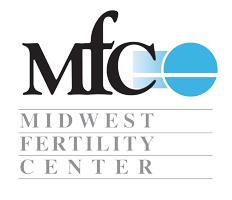Autoimmune disorders, conditions where the immune system mistakenly attacks the body’s own tissues, can have profound effects on various aspects of health. Among the many concerns for individuals with these disorders is their impact on fertility. Understanding how autoimmune conditions influence reproductive health is crucial for those affected and for healthcare providers https://mfcfamily.com/ aiming to offer comprehensive care.
The Link Between Autoimmune Disorders and Fertility
Autoimmune disorders encompass a wide range of diseases, including rheumatoid arthritis, lupus, multiple sclerosis, and Hashimoto’s thyroiditis. These conditions can interfere with fertility through various mechanisms, including inflammation, hormonal imbalances, and direct damage to reproductive organs.
1. Inflammation and Reproductive Health
Chronic inflammation is a hallmark of many autoimmune disorders. This persistent inflammatory state can affect the reproductive organs, leading to complications such as:
Endometriosis: Inflammatory processes can exacerbate conditions like endometriosis, where tissue similar to the lining of the uterus grows outside the uterus, often leading to infertility.
Pelvic Inflammatory Disease (PID): Some autoimmune conditions can increase the risk of PID, which can damage the fallopian tubes and impair fertility.
2. Hormonal Imbalances
Autoimmune disorders can disrupt the delicate balance of hormones necessary for reproductive health:
Thyroid Disorders: Autoimmune thyroid diseases, such as Hashimoto’s thyroiditis and Graves’ disease, can lead to hypothyroidism or hyperthyroidism. Both conditions can cause menstrual irregularities, ovulatory dysfunction, and increase the risk of miscarriage.
Polycystic Ovary Syndrome (PCOS): Although not strictly an autoimmune disorder, PCOS often coexists with autoimmune conditions, and its hormonal imbalances can severely affect fertility.
3. Direct Damage to Reproductive Organs
Certain autoimmune conditions can directly damage reproductive organs:
Systemic Lupus Erythematosus (SLE): Lupus can cause inflammation in various parts of the body, including the reproductive system, potentially leading to infertility or complications during pregnancy.
Antiphospholipid Syndrome (APS): This autoimmune condition increases the risk of blood clots, which can affect the placenta during pregnancy, leading to recurrent miscarriages or stillbirths.
Fertility Treatments and Autoimmune Disorders
For individuals with autoimmune disorders, pursuing fertility treatments can be more complex but still possible. Several strategies can help manage fertility issues in this context:
1. Medical Management
Proper management of the underlying autoimmune disorder is crucial. Medications such as anti-inflammatory drugs, immunosuppressants, and hormone therapies can help control symptoms and improve fertility outcomes. For instance, balancing thyroid hormones in patients with thyroiditis can restore regular menstrual cycles and improve ovulation.
2. Assisted Reproductive Technologies (ART)
Techniques such as in vitro fertilization (IVF) can bypass some of the barriers to natural conception caused by autoimmune disorders. However, these methods may require tailored approaches to address specific complications, such as ensuring the uterine lining is receptive for embryo implantation in cases of endometriosis.
3. Lifestyle Modifications
Maintaining a healthy lifestyle can positively impact fertility. This includes a balanced diet, regular exercise, stress management, and avoiding smoking and excessive alcohol consumption. For autoimmune patients, reducing inflammation through diet and lifestyle changes can be particularly beneficial.
Pregnancy and Autoimmune Disorders
Achieving pregnancy is just the beginning; managing an autoimmune disorder during pregnancy requires specialized care:
Close Monitoring: Regular monitoring by a healthcare provider https://mfcfamily.com/ specializing in high-risk pregnancies is essential to manage both the autoimmune condition and pregnancy complications.
Medication Adjustments: Some medications used to manage autoimmune disorders may need to be adjusted or substituted to ensure they are safe for the developing fetus.
Postpartum Care: After childbirth, autoimmune symptoms can flare up, necessitating ongoing care and monitoring to ensure the health of the mother.
Autoimmune disorders pose significant challenges to fertility, but with proper management and medical support https://mfcfamily.com/, many individuals can achieve successful pregnancies. Understanding the interplay between autoimmune conditions and reproductive health is crucial for developing effective treatment plans and providing comprehensive care. By addressing inflammation, hormonal imbalances, and organ damage, and through the use of advanced reproductive technologies, individuals with autoimmune disorders can overcome many of the hurdles to fertility and enjoy the possibility of starting or expanding their families.

